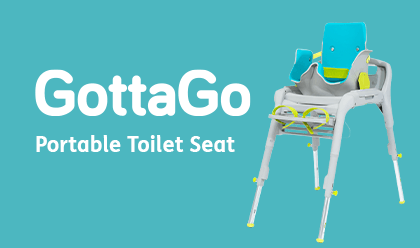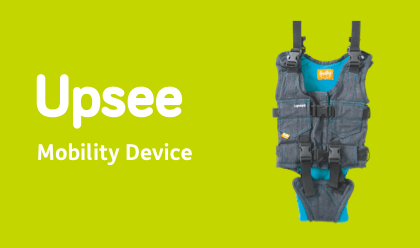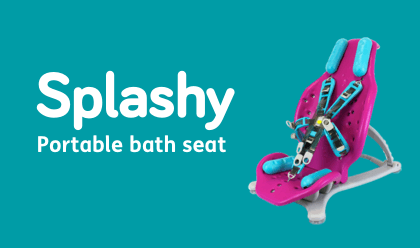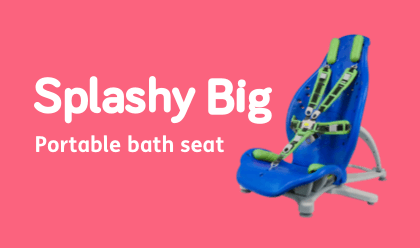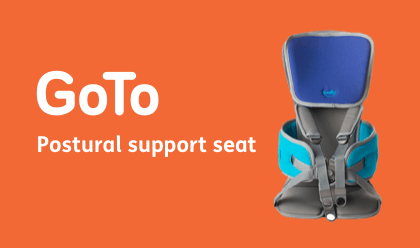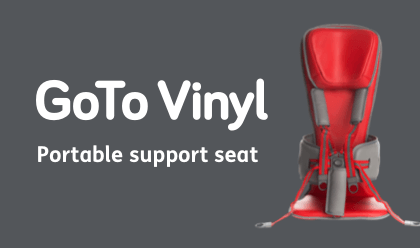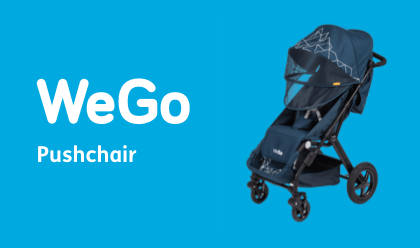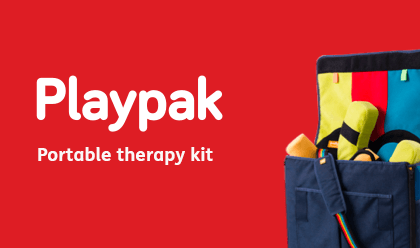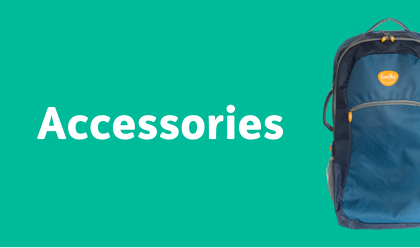Greener Across the Pond? Exploring Special Needs Differences Between the US & UK
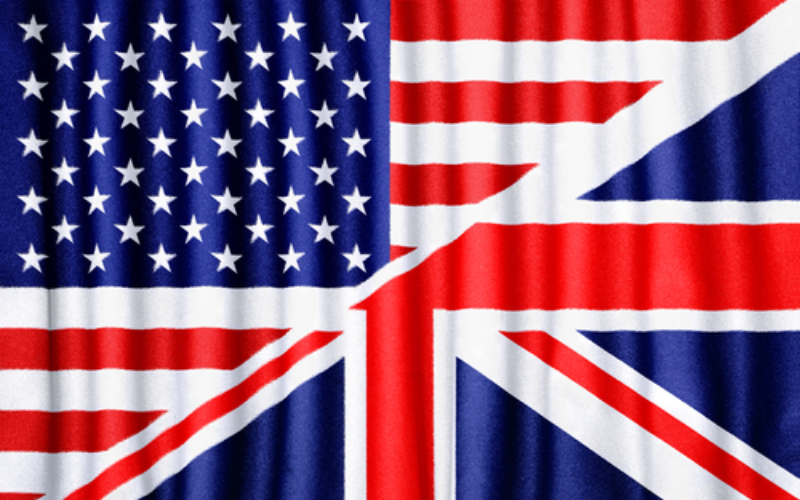
Stacy Warden, mum to Noah, traveled to the UK last year and says she fell in love with it. Here are some of what she said she desired most about what the UK offers for children who have special needs:
Television Programs
Just about all UK children’s programming features children with special needs. My first introduction to this huge difference in children’s television was while we were in our hotel and we turned it on to BBC.
I was so shocked when I seen not one, not two, but five children with different levels of abilities in wheelchairs gardening on a show called Something Special with Mr. Tumble.
It became and instant hit, so much so we bought a multi-regional DVD and imported the box sets. I thought maybe it was just one particular show, however upon further exploration other UK shows were equally inclusive, Balamory, and Mr. Bloom’s Nursery also featured those with special needs.
Here in the US we see the occasional child with special needs, but our programs are not nearly as saturated with children of different abilities like they show in the UK. It does our child the world of good to see other children regularly on television who are just like him.
Equipment Vendors & Equipment
Hands down you ask any US parent and we will tell you all the very best adaptive equipment originates and exists in the UK.
Many of us spend countless hours attempting to find creative ways of getting items shipped from across the pond.
It’s very discouraging when you know something exists but your child doesn’t have access to it. And it’s been my experience that vendors in the UK don’t just view what they do as a job, but as changing lives for the better.
They care, and they genuinely mean it.
Accessible Bathrooms
I almost thought I was on another planet when I landed at Heathrow Airport in the UK and experienced our full-fledged accessible bathroom.
Nothing like you could ever imagine. A changing table for older children and adults, a ceiling/hoist lift, huge space so the entire family could comfortably fit, height adjusted sinks and super clean.
I’ve never come close to experiencing anything like it. And it’s not just Heathrow Airport, Changing Places has hundreds of accessible bathroom locations all across the UK with more expanding each day. I have never even seen one anywhere that could even hold a candle to what the UK is doing anywhere in the USA.
Disabled vehicle and housing assistance
The UK also has a higher rate mobility (a disability state benefit), if you receive this you can apply for a Motability car.
Motability is a UK based charity. This provides for the cost of your car, car tax, insurance and maintenance is paid.
There is an advance payment which for smaller cars can be nil but for WAVs can be up to £20,000. You can apply for grant funding to help with the advance payment. This is a national program.
The UK also provides for disabled housing assistance. Depending on the disability your child (and home) can be assessed for a Disabled Facilities Grant - again a national program but interpreted differently within different counties.
This can mean anything from wet rooms, downstairs toilets to lifts, chair lifts and also full extensions to provide downstairs bedrooms, widened doors, ramped access etc.
Here in the US there is no such program whatsoever to help assist, much let alone cover the entire cost of an accessible vehicle.
And there are no housing assistance programs offered for families with special needs children.
For some select families who qualify some states offer Medicaid Waiver programs that will generally permit for one home modification every five years.
Terminology & Attitudes towards those with special needs
What I loved most about the UK was the attitude towards my child with special needs. Not once was a single person unkind.
We were approached often as if we were any other family to say hello or wave, people spoke directly to our son, never thinking twice if he was non-verbal. The UK has also gravitated away from using words like “handicapped” and now find the word rude.
The proper reference is the use of the word disabled.
It’s a much kinder and gentler approach to viewing those who are differently-abled.
Very refreshing and it left me feeling like my child was unconditionally accepted and loved by all.
Claire Smyth, mother to Daniel likewise has some features about the USA that she feels are desirable when raising a child with special needs:
I lived in Georgia for a year as a student and visited almost 20 states so feel I have some grasp of life in the States.
However, I haven’t been there since Daniel was born so my views in terms of special needs come from my online experiences and connecting with American special needs families over the years – so here goes…
Equipment Vendors & Equipment
I chuckled when I read Stacy’s list because in my experience, a lot of what I have wanted to buy for Daniel comes from American companies.
Few of which ship to the UK or if they do the shipping costs can actually be more expensive than the item wanted.
Therapy, types and availability
I definitely think American families have greater opportunities to access a wider range of therapies and different approaches.
Therapies that would be considered common practice in the States are often thought of as unconventional here in the UK with some therapists not even familiar with the various types.
There is also a lack of private therapy options available here.
So if UK families do have the funds to access private therapy they often have to travel quite far to do them which limits the opportunities to do them on a regular basis.
Genetic Testing & Medical Procedures
I struggled on the right terminology for this one so I am hoping my explanation is a little better.
I feel I need to add a disclaimer at this point, I appreciate everything the National Health Servicce (NHS) provides for my family BUT it can be infuriating sometimes.
Genetic testing is one area where we have a lot of experience. Our experience has been one test at a time with weeks if not months of waiting for results before moving on to the next test.
I fully understand the principle of reduce costs by minimising the testing to the most likely/common cause before moving on to the rarer causes of the disability or symptoms. But the experience of this first hand, has been an emotional roller-coaster pushing us to breaking point over a prolonged period of time.
I understand that similar tests would have been done all at once as standard practice in the States meaning families would get much earlier diagnosis even for rarer conditions, saving a lot of heartache.
I think it would be fair to say that similar to therapies, the US would be much further advanced than the UK for genetic testing.
So for example the microarray genetic test, which can simultaneously check multiple gene sequences has only recently become a regular part of the genetic testing programme and in fact is still patchy across the country but has been more widely used in the States for a long time.
Although we haven’t had the need for medical intervention with Daniel, my heart breaks for families who have had to raise significant funds to travel to the US especially for specific epilepsy treatments and Selective Dorsal Rhizotomy.
Holidays
So the UK is not known for it’s great weather especially here in Northern Ireland.
For British and Irish special needs families holidaying in warmer climates usually involves air travel to a foreign country - any one travelling with a disabled child knows the difficulties this can bring - and that’s before you even get there.
Once you’re there you then have the worry of needing medical assistance in a foreign language and within unfamiliar medical setting.
Living in Georgia, we regularly packed up the car going on road trips and experiencing so many new things - we skied, surfed, mountain climbed within neighbouring states. I completely understand why so few Americans hold passports - there’s a life time of experiences to be enjoyed in their vast country.
The First Ladies
Michelle Obama is using her position as the American First Lady to forge ahead with her own agenda to improve the world.
Her initiatives include better support for miltary families, education for girls, helping working women balance career and family, encouraging national service, promoting the arts and arts education and tackling obesity.
Samantha Cameron is the wife of the British Prime Minister, David Cameron.
But, more importantly she is mum to Ivan who had Cerebral Palsy and died aged 6 in 2009.
I wish Samantha Cameron was using her experience as a special needs mum and her position as the UK’s ‘First Lady’ to make the United Kingdom and the rest of the world a fair and just place for disabled children and their families.
Instead, special needs families in the UK are facing their most uncertain period ever, feel vulnerable and scared about the future plans of her husband’s Government.
The Firefly Garden would like to wish all our US Firefly Friends a fantastic Independence Day! Do tell us what you get up to to celebrate!
